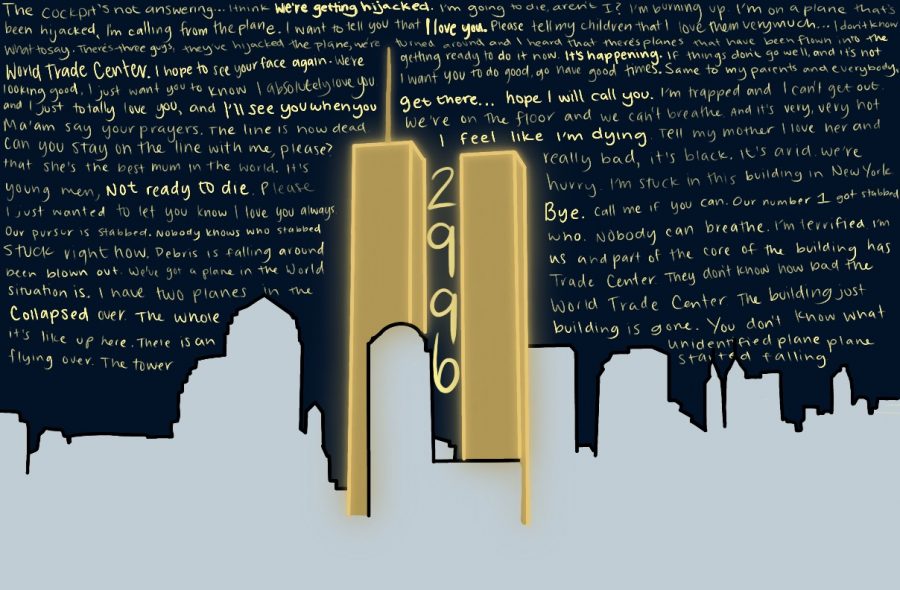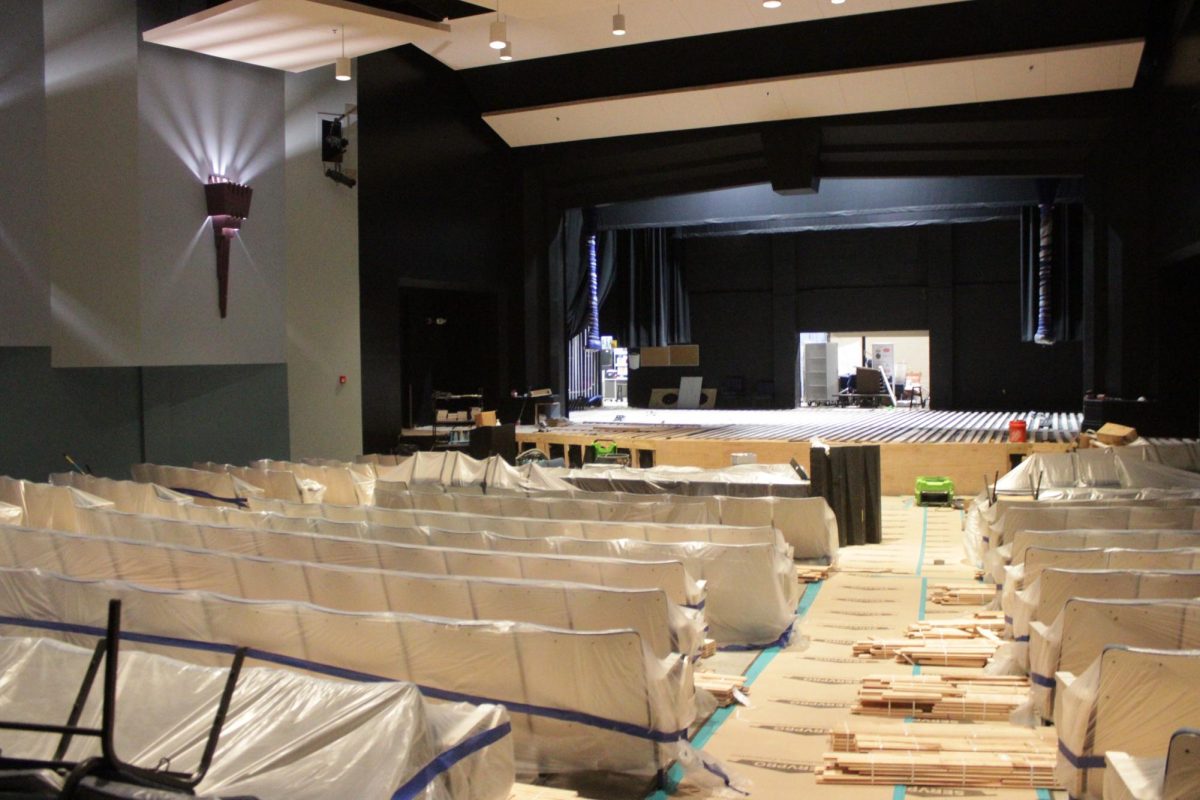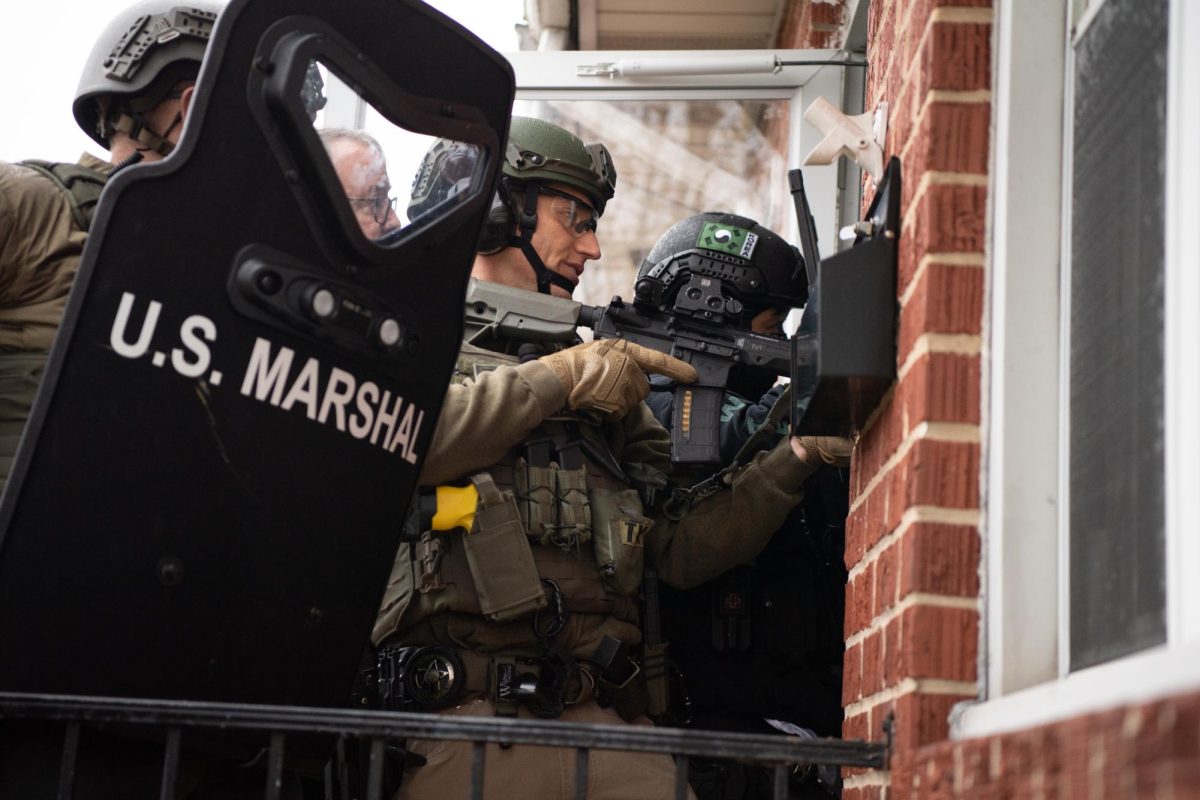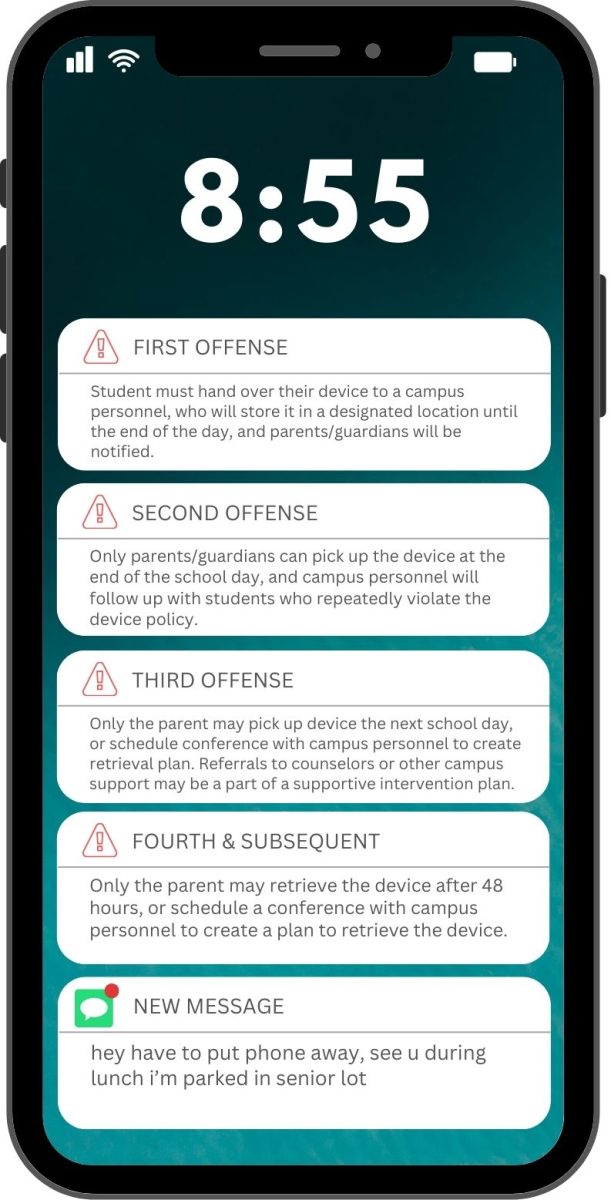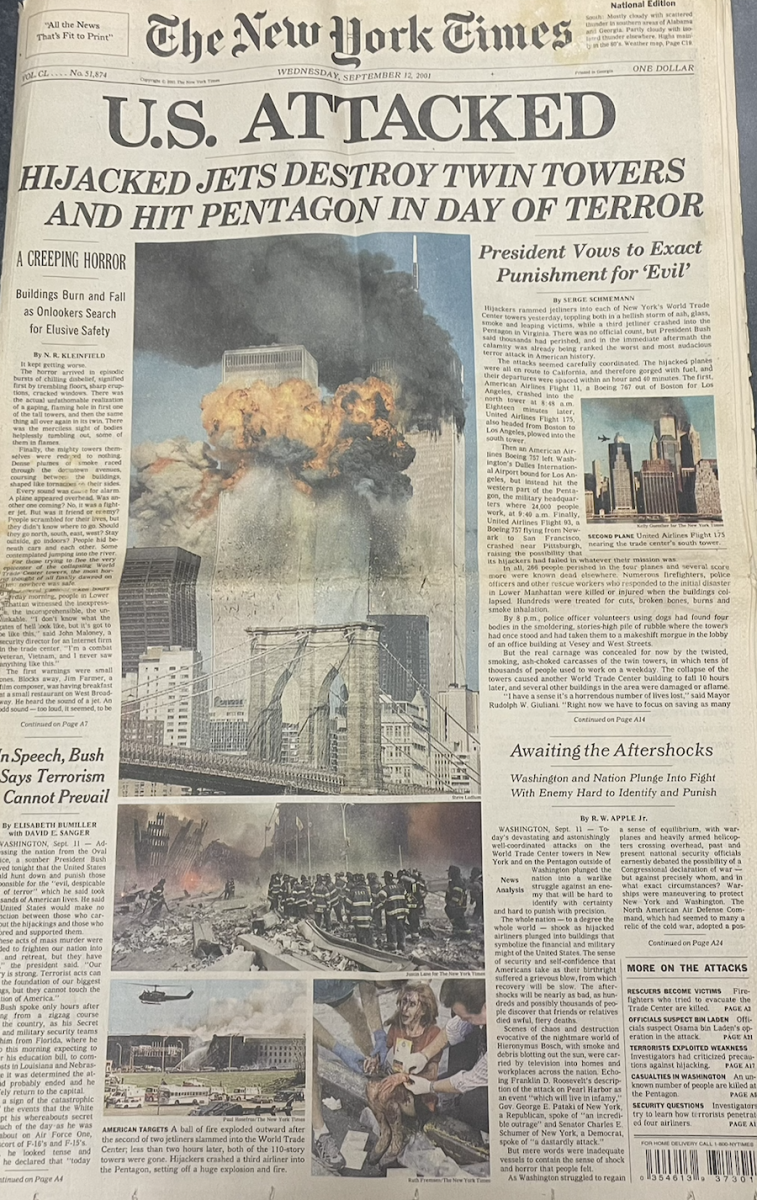It was a sunny Tuesday. Most people weren’t even at work yet.
At 8:20 a.m. Betty Ong, a flight attendant on United Airlines flight 11, placed a call.
“The cockpit’s not answering,” relayed Ong to 911 operator Vanessa Minter. “Somebody’s stabbed in business class – and I think there’s mace- that we can’t breathe. I don’t know, I think we’re being hijacked.”
Twenty-six minutes later, the world changed forever.
Earlier that morning, President Bush arrived at Booker Elementary in Sarasota, Fla., meant to spend the morning reading with students. Former White House press secretary, who was deputy press secretary at the time, Scott McClellan remembers the moments they found out about the first crash.
“I looked at my pager. [There was a message] from a press office staffer at the White House,” McClellan said. “It was brief and straightforward: ‘CNN is reporting a plane has hit the World Trade Center.’”
McClellan and two White House reporters rushed to the temporary press filing center at the school so they could access CNN on the television. Then they saw the second plane strike.
“I will never forget the look on the president’s face right after the chief of staff, Andy Card, had whispered into his ear, ‘a second plane has hit the second tower. America is under attack.”’
Security guard Bob Bedard, who served as a Chicago firefighter for more than 30 years before he came to McCallum, said that the years after Sept. 11 have been good and bad for firefighters in New York and across the nation. Bedard said that after Sept. 11 contract negotiations and pension reforms improved greatly for firefighters all across the country. But the response wasn’t entirely positive. “Hundreds of firefighters died after the 343, and the government pretty much stalled at helping these firefighters and their families, with their cancer treatments and money for the families. There’s been some bitterness from that.” Interview by Helen Martin.
A makeshift holding room and command center was set up for president Bush in a classroom, but he remained in the classroom full of second-graders while the students finished reading.
“I walked into the classroom where he was to get to his holding room just after that moment,” McClellan said. “The president was sitting in the chair. Someone was reading but he was staring straight ahead, and I had never seen that look on his face before. He knew we were at war and it showed on his face through a sense of anger I could sense in his eyes because I knew him well, but the kids would not have noticed.”
In a Fox 13 interview , some of the former students described that day in Sarasota.
“I remember looking up briefly when I was supposed to be following along,” Lazaro Dubrocq remembered. “I noticed Mr. Card came in off the side, whispered something in the president’s ear. I remember the image of him looking up and kind of looking off into the distance when he’s receiving news of the attack.”
Wanting to avoid making the students fearful, Bush waited until they finished reading The Pet Goat by Siegfried “Zig” Engelmann.
According to McClellan Bush “wanted to project a sense of calm” whilst in front of the second-graders. Bush wanted to keep them from the real world that was in crisis.
“My entire life was Sarasota,” Dubroc told Fox 13. “I didn’t know what the Twin Towers were.”
But all the adults in the room did.
“It was shocking to us all,” McClellan said. “But I also knew we had a job to do to support the President and his needs to provide information to the press at this moment of unimaginable tragedy. … You are at the center of the decision making during the biggest crisis of his young presidency. You are very focused on responding to the situation, doing your job and not really having time to think about much else. You are also trying to gather as much information as you can so you can be fully informed—but things are unfolding quickly and not all initial information turns out to be accurate in what was essentially the fog of war.”
Salvatore Prizio was on the F train on his commute his job at a record label at Rockefeller Center when the first plane hit the World Trade Center on Sept. 11, 2001, and he heard the second plane fly by on its way to lower Manhattan. After the third plane hit the Pentagon, he knew the nation was under attack. While he remembers the day as one of chaos and tragedy, it was also a day filled with random acts of heroism. “The best part of that day was that every single person you ran into was willing to do something to help you.” To escape Manhattan, Prizio walked with his girlfriend (and future wife) and his best friend all the way to Brooklyn. Interview my Miles Traweek Moehle.
Part of the initial information included that the White House had been struck, where many of McClellan’s colleagues, as well as his oldest brother, former FDA commissioner Mark McClellan, who was at the time on the president’s council of economic advisors, worked in the Executive Office Building.
“The report, we quickly learned, was inaccurate,” McClellan said. “But in the moment all I could think about was my White House colleagues—including my oldest brother—who worked in the building.”
Shortly after the students finished their book, at 9:30 in the morning, Bush made calls and met with advisers, and gave a speech at the school, giving his first remarks after the attacks.
“Ladies and gentlemen, this is a difficult moment for America,” he began.
After explaining that he had to return to Washington and thanking his hosts, he spoke bluntly about the terrible events of the morning.
“Today, we have had a national tragedy,” he said. “Two airplanes have crashed into the World Trade Center in an apparent terrorist attack on our country. I have spoken to the vice president, to the governor of New York and to the director of the FBI, and I’ve ordered the full resources of the federal government to help the victims and their families and to find those folks who committed this act.”
And then he made a vow.
“Terrorism against our nation will not stand.”
Seven minutes later, a third plane hit the Pentagon. And minutes before 10 o’clock, the south tower collapsed.
“I also will never forget later that morning watching in horror as the Towers crumbled to the ground,” McClellan said exactly two decades later. “I get chills and emotional thinking about it. I don’t think anyone was prepared for witnessing that moment.”
On the morning of Sept. 11, 2001, pilot Calvin Hagood was on a westbound flight from D.C. to Phoenix to do some military reserve work only to have his flight make an emergency landing in Indianapolis until flight control could determine the scope of the attacks. It was in the Indy airport that Hagood first saw the attacks on television. “One of the significant things that students should know is that on a day that had so much violence and tragedy and loss of life that there were a lot of good people, men and women, firefighters, police officers, paramedics, that were going into danger and rescuing people and trying to save their lives. Many of them did, and many of them lost their lives doing so or trying to do so.” Interview by Emma Hagood.
At 10:03 in the morning, after passengers overpowered the hijackers, flight 93 crashed into a Pennsylvania field approximately 20 minutes away from Washington D.C. by flight. All 33 passengers, seven crew members, and the hijacker perished upon impact.
Today marks the 20th anniversary of the Sept. 11 attacks, and the lasting and devastating impact of the attacks remains real for McClellan. .
“This is an emotional day for me—20 years later—and having served during a time of war,” he said. “The world changed forever that day. New policies were put in place in short order that day and in the days after 9/11. Some were necessary, some were good, and others were misguided. … I never forget the victims and first responders who lost their lives this day. And having been with the President the many times when he visited families of the fallen or the wounded warriors from the wars that followed 9/11, you never forget all who were lost or sacrificed so much—or their families and loved ones.”



